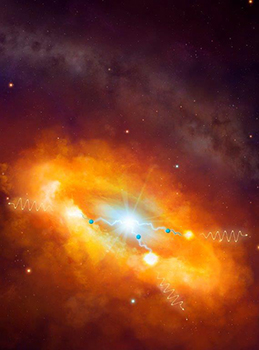Latest News Archive
Please select Category, Year, and then Month to display items
29 March 2019
|
Story Lacea Loader
 Edward Kieswetter, newly appointed SARS Commissioner.
Edward Kieswetter, newly appointed SARS Commissioner.
The Chairperson of the Council of the University of the Free State (UFS), Mr Willem Louw, extended a message of congratulations to Mr Edward Kieswetter on his appointment by President Cyril Ramaphosa this week as Commissioner of the South African Revenue Service (SARS).
Mr Kieswetter served as Deputy Chairperson of the UFS Council from 2008 to 2014 and was Visiting Professor at the university’s Business School until 2018.
“On behalf of the Council and the university community, I wish Mr Kieswetter well in his work as newly appointed SARS Commissioner. It is evident that the high-level selection panel made an exceptionally good choice for this crucial position. Mr Kieswetter’s vast experience as former SARS deputy commissioner, his subsequent track record of transformative leadership, and his experience in turning around a large institution will serve him well in this new role,” says Mr Louw.
Released by:
Lacea Loader (Director: Communication and Marketing)
Telephone: +27 51 401 2584 | +27 83 645 2454
Email: news@ufs.ac.za | loaderl@ufs.ac.za
Fax: +27 51 444 6393
Two scientists part of team that discovers the source of the highest energy cosmic rays at the centre of the Milky Way
2016-03-22

Artist's impression of the giant molecular clouds surrounding the Galactic Centre, bombarded by very high energy protons accelerated in the vicinity of the central black hole and subsequently shining in gamma rays.
Artist's impression: © Dr Mark A. Garlick/ H.E.S.S. Collaboration Spotlight photo:
Dr Brian van Soelen and Prof Pieter Meintjes of the UFS Department of Physics.
Photo: Charl Devenish
|
H.E.S.S. (High Energy Stereoscopic System) scientists publically revealed their latest galactic discovery in the international science journal, Nature, on 16 March 2016. These scientists were able to pinpoint the most powerful source of cosmic radiation – which, up to now, remained a mystery.
Part of this team of scientists are Prof Pieter Meintjes and Dr Brian van Soelen, both in the University of the Free State (UFS) Department of Physics. Dr Van Soelen explains that they have discovered a proton PeVatron – a source that can accelerate protons up to energies of ~1 PeV (10^15 eV) – at the centre of the Milky Way. The supermassive black hole called Sagittarius A has been identified as the most plausible source of this unprecedented acceleration of protons.
The protons are accelerated to Very High Energy (VHE) gamma rays. The energy of these protons are 100 times larger than those achieved by the Large Hadron Collider at CERN (the European Organization for Nuclear Research).
According to Dr Van Soelen, the fact that this research has been published in Nature demonstrates the importance and pioneering nature of the research conducted by H.E.S.S. The H.E.S.S. observatory – operational in Namibia – is a collaboration between 42 scientific institutions in 12 countries.
In 2006, H.E.S.S. was awarded the Descartes Prize of the European Commission – the highest recognition for collaborative research – and in 2010 the prestigious Rossi Prize of the American Astronomical Society. The extent of the observatory’s significance places it among the ranks of the Hubble Space Telescope and the telescopes of the European Southern Observatory in Chile.
“The next generation VHE gamma-ray telescope,” Dr Van Soelen says, “will be the Cherenkov Telescope Array (CTA), which is currently in the design and development stage.” Both Dr Van Soelen and Prof Meintjes are part of this project as well.
H.E.S.S. has issued a complete statement about the paper published in Nature.